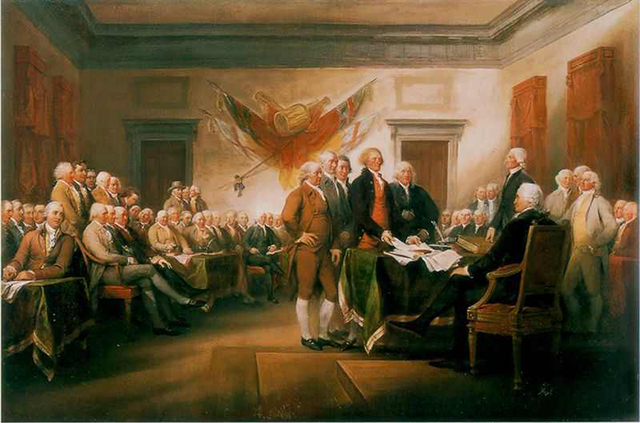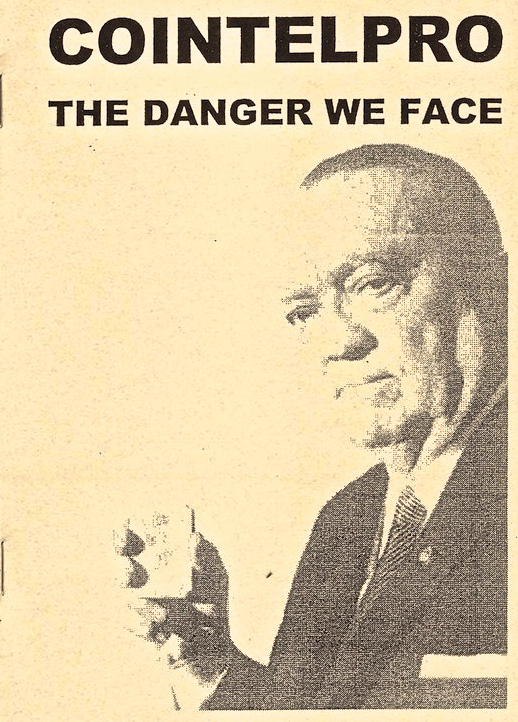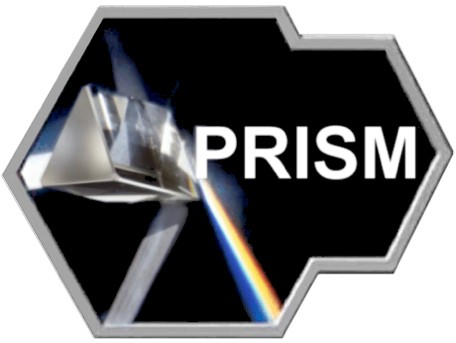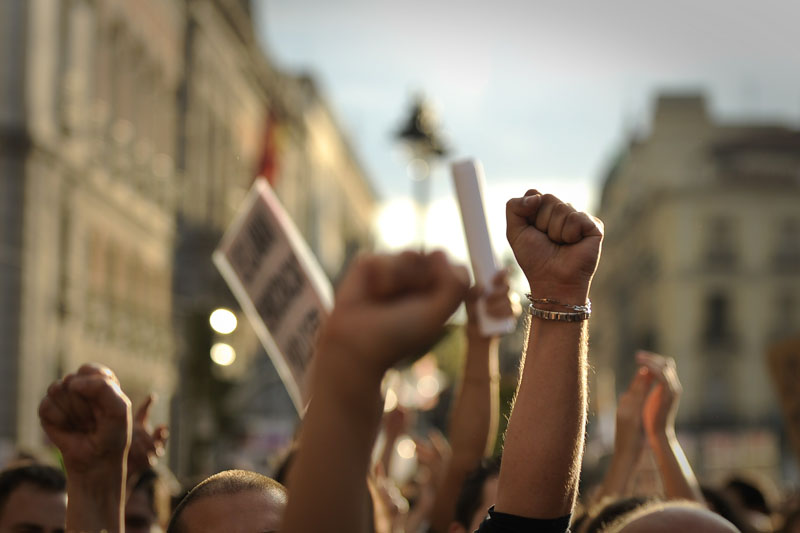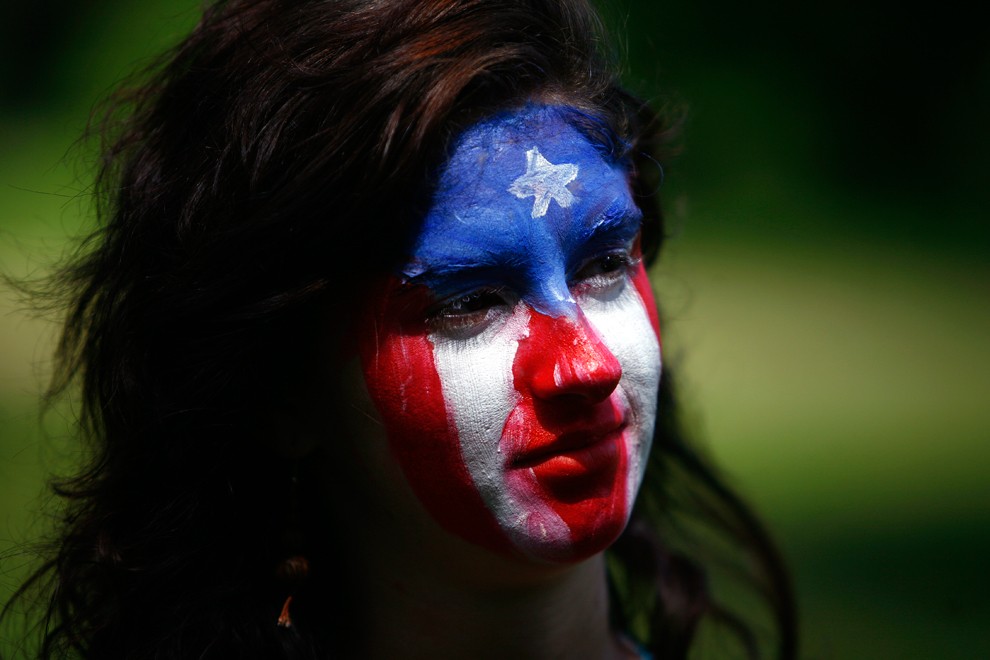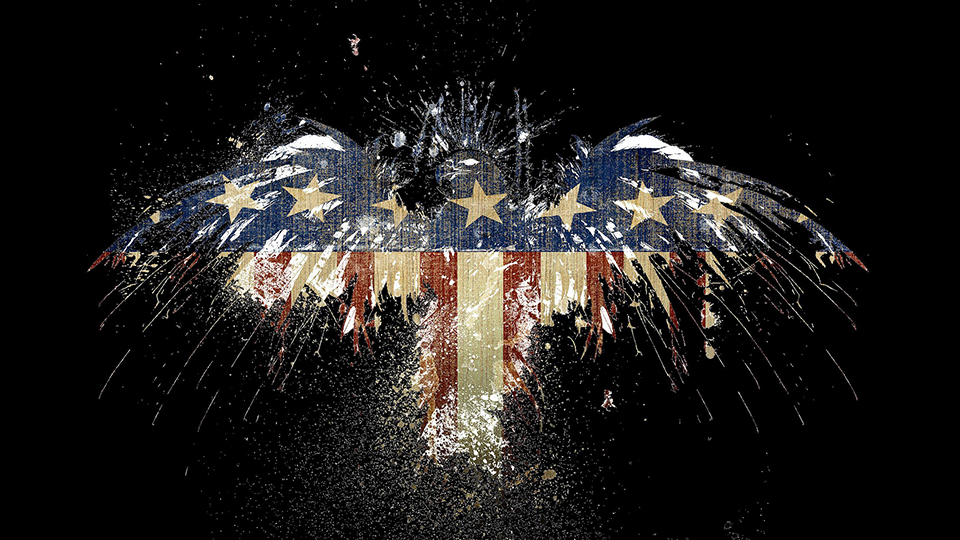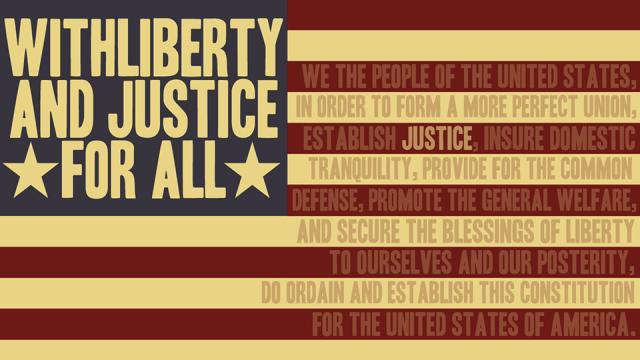
America as a country and as an ideal stands for nothing unless it stands for freedom: freedom to achieve the ambitions proclaimed in the Declaration of Independence. But in order to have the freedom TO pursue Life, Liberty and Happiness, the Founders created a Bill of Rights to ensure that Americans were free FROM certain specific abuses of power that they had viscerally experienced under King George III. The Fourth Amendment is explicit: "The right of the people to be secure in their persons, houses, papers, and effects, against unreasonable searches and seizures, shall not be violated, and no Warrants shall issue, but upon probable cause, supported by Oath or affirmation, and particularly describing the place to be searched, and the persons or things to be seized."
The Constitution, of which the Bill of Rights is a part, is the highest law of the land at all government levels. To violate the Constitution is not only illegal and, if committed with intent, criminal; it is also a sacrilege, a violation of the essence of American self-governance, and of the sanctity of the lives of those who fought for—and are continuing to fight for—that ideal. Every major war that America has fought has been fought for the ideal of freedom from one form of authoritarianism or another. The American Revolution fought against the authoritarianism of its day: monarchy. WWI ostensibly fought against authoritarianism in the form of military imperialism. WWII fought against fascism, and the Cold War against the authoritarianism of communism.
Today's whistleblowers are fighting the same scourge that the Founders and every genuine patriot has fought against. Only today, the authoritarianism that we're confronting isn't a foreign enemy, but one from within. Not that this is exactly new. Before the advent of the Internet, there was COINTELPRO, the covert FBI counterintelligence program that spied on and actively disrupted civil and political rights activists of the 1960’s and 1970’s, from Martin Luther King, Jr. to then-Attorney General Robert F. Kennedy. The final report of the Senate select committee investigating COINTELPRO, called the “Church Committee,” made important findings that reflect an enduring truth: unchecked governmental power inevitably leads to abuse and the evisceration of freedom.
Specifically, the Committee found that the domestic activities of the intelligence community violated specific statutory prohibitions and infringed the Constitutional rights of American citizens. The legal questions involved in intelligence programs were often not considered. On other occasions, they were intentionally disregarded in the belief that because the programs served the "national security," the law did not apply. While intelligence officers on occasion failed to disclose to their superiors programs which were illegal or of questionable legality, the Committee found that the most serious breaches of duty were those of senior officials who were responsible for controlling intelligence activities and generally failed to assure compliance with the law.
Indeed, the Committee found that many of the techniques used then would be intolerable in a democratic society even if all of the targets had been involved in violent activity, but COINTELPRO went far beyond that. The Bureau conducted a sophisticated vigilante operation aimed squarely at preventing the exercise of First Amendment rights of speech and association, on the theory that preventing the growth of dangerous groups and the propagation of dangerous ideas would protect the national security and deter violence.COINTELPRO and its progeny—Stellar Wind, Total Information Awareness and, most recently, PRISM—all raise the question: If America turns into the very thing that we have always fought against, who will fight to preserve the freedom that is America's essence?
I welcome President Obama's call for a renewed debate on the balance between "privacy" and what he calls "security". But I fear the internal momentum of the post-9/11 surveillance/police state will continue unabated because of the inside-the-beltway obsession with "terrorism," and because of the incredibly powerful financial incentives created by the huge sums of taxpayer money lavished on "security" since post-9/11. Today we have not only the military/industrial complex that President Eisenhower warned us about, but a burgeoning surveillance/police complex, as well.
All the years of funding the latter since 9/11 has created an enormous, interlocking entity, with many of the same defense contractors who have been servicing the Iraq and Afghanistan wars now moving into a whole new "market": domestic internal surveillance and policing.
Until the revelations of the last couple of weeks, drones and the vast data storage complex in Bluffdale, Utah, were the most visible examples of this. Now you can add the vast, worldwide surveillance of everything electronic.
While I expect that President Obama's call for such a debate won't change a thing, if it actually occurs perhaps it will present the American public with a choice. It's not the false choice that has so far been characterized as one between security and privacy. It's the choice between "authoritarianism" and "freedom."It's the choice of whether to be a people free FROM authoritarianism in order to be free TO pursue the ambitions of the Declaration of Independence. It's a choice between being on the "right side of history" and fighting for the essence of what America stands for—freedom—or choosing fear and the false hope of security.
As in all aspects of life, whether driving down the freeway or flying in an airplane, there are inherent risks. We chose to drive and fly, despite the risks. We would rather be mobile ("free") with some attendant risks, rather than be immobilized by fear. Today, we face a similar choice: do we allow fear to immobilize us into forfeiting the freedoms that are inherent to our identity as Americans, or do we accept certain risks and remain true to our national character.
What former defense contractor-turned-whistleblower Edward Snowden has said he fears most is not the U.S. government's inevitable hunt to capture, torture, prosecute and incarcerate or kill him, but the fear that most Americans will simply not care about—or even hear about—the state of global surveillance he has risked himself to reveal. In a recent interview with Bill Moyers, Harvard professor Lawrence Lessig said that Snowden’s concerns about public apathy to his revelations of government data gathering are well-founded. "I think the thing he most fears is the most likely outcome," Lessig said, citing the relative lack of attention given to the Wall Street bailouts or even to their popular response: Occupy Wall Street.
"I think ordinary people have lost the sense that there’s a reason to try to engage politically because in the end they know how the cards will be dealt," Lessig continued. "And the cards will be dealt not according to what makes sense or what people actually believe, but where the power is. And here the power is both the literal power of the most powerful security state in the history of the world and also the power of enormous interests to support and continue that state."
Snowden himself told the Guardian: “People will see in the media all of these disclosures. They’ll know the lengths that the government is going to grant themselves powers unilaterally to create greater control over American society and global society. But they won’t be willing to take the risks necessary to stand up and fight to change things to force their representatives to actually take a stand in their interests.”
If we are to genuinely engage in the debate that Snowden, Lessig and so many others hope we will engage in, then we need to frame the terms correctly. It's not a choice between "security" and "privacy". It is between authoritarianism and the loss of freedom.
Genuine patriotism today means resisting authoritarianism by demanding that the government be restrained by the Constitution, the Bill of Rights—the 1st and 4th Amendments, among others—and accepting certain risks inherent to modern-day life, as opposed to accepting what is a historical certainty: that if we chose the illusion of "security" over "freedom" we will have lost both.
At this pivotal moment in history, a moment that will define America for generations, are we the brave people who have risked our lives over centuries for freedom? Or have we lost our national soul—and now are a mere remnant of our former self—willing so easily to give up what those who sacrificed their lives have given us?
The essence of each generation is about what it passes on to the next. If we give up the torch of freedom, the race has essentially ended.
3 WAYS TO SHOW YOUR SUPPORT
- Log in to post comments

